Among the fruit infusions, the blackberry one is one of the tastiest and most beneficial for our well-being. Blackberries, together with other ingredients that make up the infusion, can bring powerful nutrients such as fiber, antioxidants and even vitamin C. Useful for the defense of our health, antioxidants protect us from radicals which accelerate old age and can damage our cells.
Blackberry infusion: properties and benefits
Berries, and blackberry in particular, contain polyphenols, antioxidants known to help protect the heart and other parts of the body. anthocyanins such as phenolic acid, flavonoid and flavin fight free radicals, harmful molecules that enter the body and can damage cells. Blackberries are among the fruits with the highest content of antioxidants, which in addition to anthocyanins, include catechins, tannins, quercetin, gallic acid. This fruit protects the heart thanks to the properties of flavonoid antioxidants such as anthocyanins.
The tissues that line the inside of blood vessels and the heart benefit from the components of blackberry, which as antioxidants fight the activities that damage them. In addition, the magnesium contained in blackberry is also useful for regulating blood pressure. It stimulates the flow of blood vessels to the heart, without hindering its correct progression. A benefit for cardiovascular health. The circulatory system also benefits thanks to the vitamin K present in blackberry, which helps normal blood clotting. For the healing of wounds, in ancient times blackberries were used in this sense, also due to the presence of tannins. These substances have an anti-inflammatory and vasoconstrictive quality, constrict blood vessels accelerating the healing of wounds, or painful states as in the case of hemorrhoids.
Other benefits of blackberry are those for the bones, through or mineral salts, and for the eyes thanks to vitamin A. For the well-being of the bones, blackberry contains vital minerals such as calcium, magnesium and vitamin K, which are essential for maintaining healthy bones. To protect the eyes, blackberry is useful thanks to the anthocyanin antioxidants and vitamins contained, as well as containing lutein which helps against the damage of ultraviolet rays. For skin health, blackberries contain vitamins E and C, as well as antioxidants . Vitamin C can form and strengthen the structure of collagen, such as connective tissues. In the intestine, blackberries also give purifying effects, useful for eliminating toxins in the body.
Origins and History of cultivation
In this mix there are several berries or natural elements that help our health. For the herbal tea we have dried hibiscus petals, dried Corinthian grapes, blackberry, papaya cubes, elderberry cuddles, pieces of raspberry and strawberry, black currant and blueberries. The blackberry infusion is mainly composed of berries and fruits selected for their precious health qualities, known over the centuries to many populations. We know that berries have been considered beneficial foods for humans, being excellent nutrients in terms of taste and as a supply of healthy substances. One of the berries widely known as beneficial is blackberry, a delicious fruit that comes from the Rubus genus, common in the Mediterranean and in temperate climates.
Already in ancient times (Iron Age), various peoples consumed blackberries, while in the Greco-Roman era, they used blackberries for herbal medicine. They used all parts of the shrub for healing and treating various diseases and ailments. In addition to the fruit, the leaves, root and bark of the blackberry contain many nutrients for human health. Blackberries were used to treat intestinal problems, fever, and ulcers. Even the Native Americans, who knew them at different latitudes, used them as food and to dye animal skins. While wild growth was and still is widespread today, blackberries began to be grown in the 19th century, especially in the United States. Today there are many crosses between the varieties, and in 1921 an attempt was also made to develop blackberry plants without the thorns. On a culinary level, blackberries have always been appreciated together with other berries, for their sweet and delicious flavor. For this reason, in addition to being consumed as fresh fruits, they were used to make desserts and jams. In the seventeenth century in England wines and liqueurs were also made. In the herbal tea we offer, there are also other berries and flowers, with excellent antioxidant properties. These are natural gifts that are still used today to create natural herbal remedies. Many fruits of this herbal tea have been renowned for centuries thanks to their beneficial qualities for circulation, and recently they have also been identified as valid allies for the beauty of the skin. In the past these berries or fruits were available only in the territories where they grew, today they are easily available through these preparations of herbal teas ready to enrich our diet. The most useful parts are collected, dried and preserved to create a delicious and beneficial infusion. The mix we propose combines different berries or fruits to enhance their antioxidant and draining properties.
Plant and flowers
The components of the herbal tea are many, and the mix contains berries and fruits of various origins. We offer an infusion with hibiscus petals, Corinthian raisins, blackberry, papaya, elderberry pampering, raspberry, strawberry, black currant, blueberry. The main ingredient is blackberry, the bramble fruit with the scientific name Rubus Fruticosus L. It belongs to the large Rosaceae family, and grows spontaneously in Mediterranean countries. It is a perennial plant, thorny and climbing, which shows the classic thickets of blackberries from the woody foliage of the arched and entangling stems. The width can also be considerable, and the stems of the blackberries arch up to about 7 m in length. Usually, the stems live a couple of years and die after fruiting. In the first year they do not produce flowers, while in the second year shoots grow on the side branches, which bear the flowers and fruits. The flowers show white or pink petals, and the blackberry fruit shows the shape of the berry. The blackberry is a false fruit, in fact: it is a drupe made up of seeds, which are the real fruits. However, they give us a fleshy pulp, about 1-3 centimeters in the berries. When it is not yet ripe, the fruit is acidic and almost woody, while when ripe it becomes sweet in taste. The color changes during maturation, passing from green to red, up to the black we know. The plant is now grown in rows or hedges, in many varieties widespread in Europe, Asia and America - some even without thorns. The function of the thorns in the blackberry bushes has been exploited to protect the villages from dangerous animals (wildlife and birds).
Nutritional values of blackberry
Blackberry retains beneficial nutrients, being a great source of vitamins. It makes available vitamin A, vitamins of Group B (vitamin B1, vitamin B2, vitamin B3, vitamin B6), vitamin C, folate, vitamin E and even vitamin K. Other healthy elements are the minerals contained in blackberry such as iron, magnesium, potassium, zinc, calcium, phosphorus. In addition to amino acids effective for human health. Even the minor ingredients show antioxidant and vitamin content.
How to use the blackberry infusion
The infusion is obtained by putting in a cup (250 ml), about 3-5 grams of the blackberry and dried fruits, with water at 100 ° C. Leave to infuse for 10 to 12 minutes, before drinking the herbal tea. Add honey or sugar if desired.
Blackberry tea: side effects and contraindications
Although fruits are usually safe and do not give adverse reactions, the infusion with blackberry and other berries is not recommended for those who have detected allergies to the components. Furthermore, given the slight laxative effect of blackberries, it is not recommended for those prone to episodes of diarrhea and for those suffering from problems such as intestinal irritation or diverticulitis. It is recommended not to exceed the correct doses for those suffering from diabetes and want to keep their blood sugar low, as blackberries are rich in sugar.

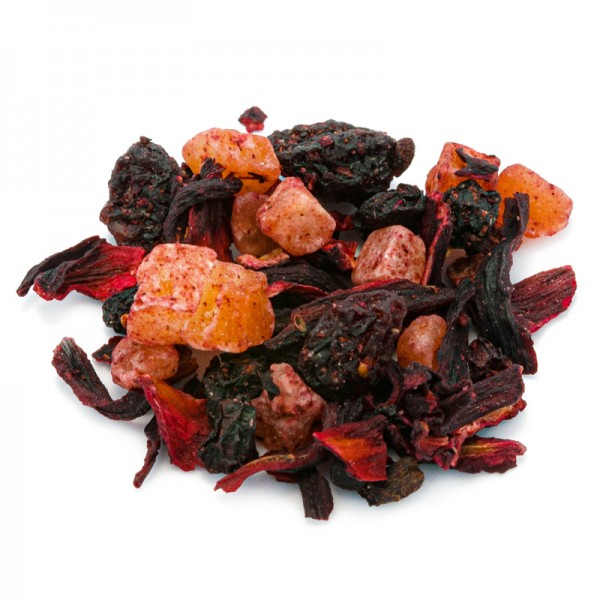









 No reward points for this product.
No reward points for this product.
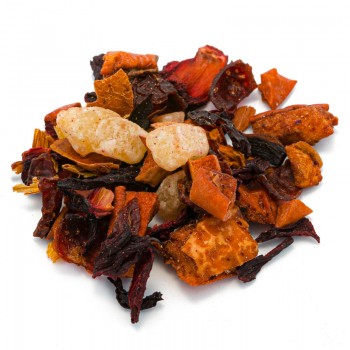
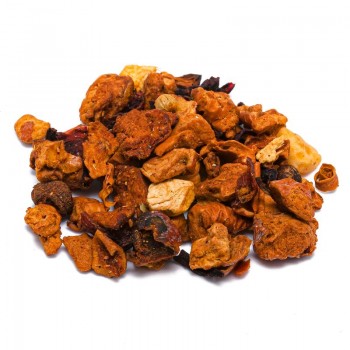
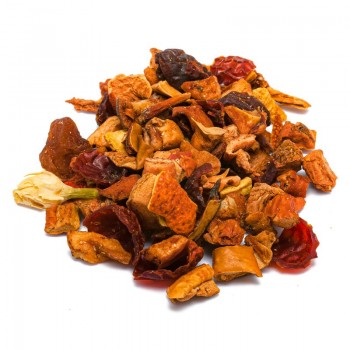
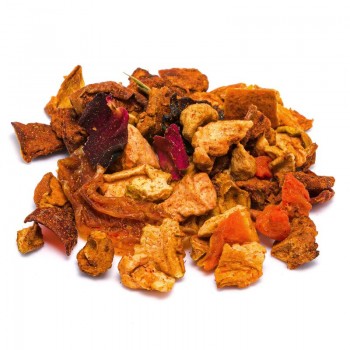
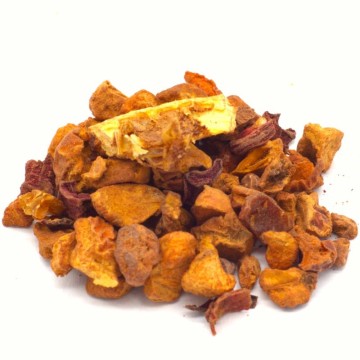
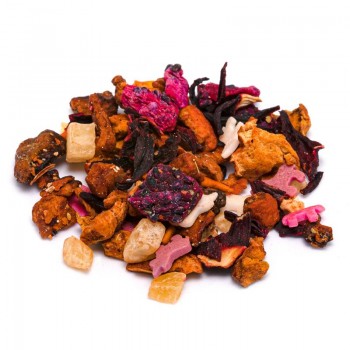
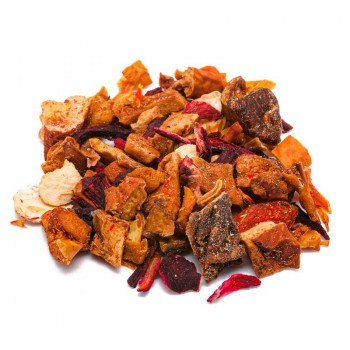
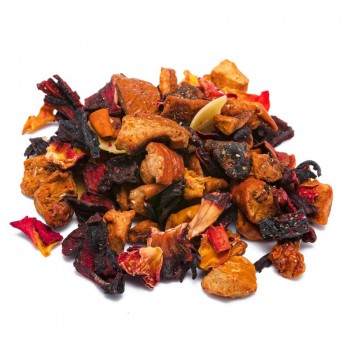
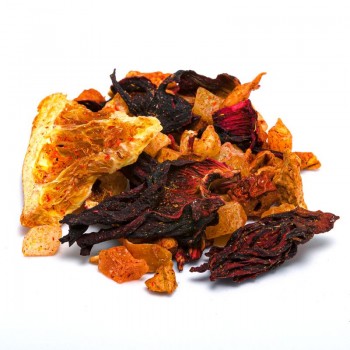
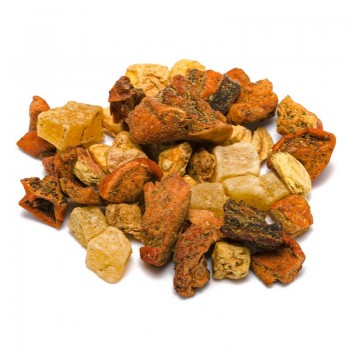
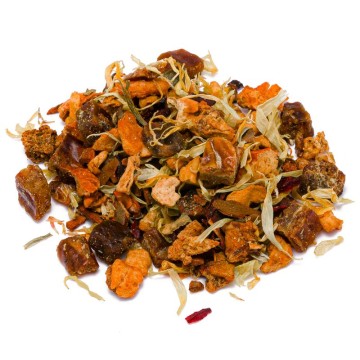
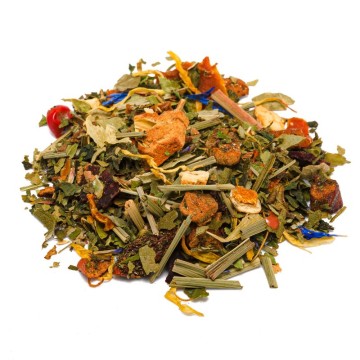
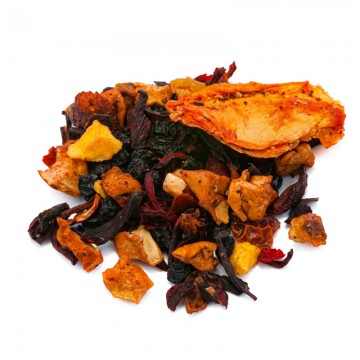
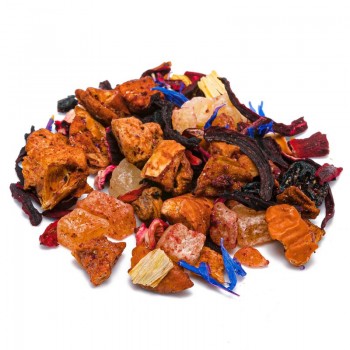
![infuso pesca melone [Natura d'Oriente]](https://www.naturadoriente.com/3535-home_default/infused-peach-melon.jpg)
